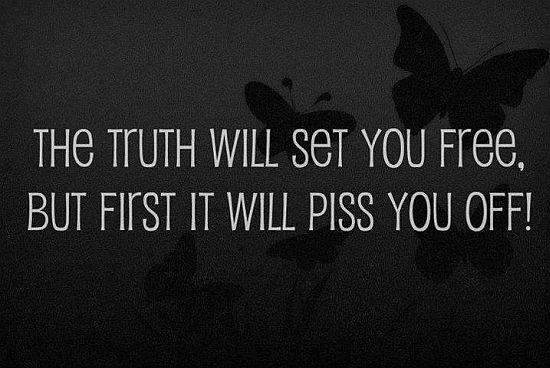Criticism as Form of Effective Motivation
Criticism may not be agreeable, but it is necessary. It fulfills the same function as pain in the human body; it calls attention to the development of an unhealthy state of things. If it is heeded in time, danger may likely be averted; if it is suppressed, a fatal distemper may develop” – Winston Churchill
One of the most popularized saying of the great Greek philosopher Socrates is said to be “man know thyself, the unexamined life is not worth living” In this few words expressed by Socrates, the key to success and the concept of life is enmeshed. In this verbatim of Socrates, underlays two concepts ‘criticism’ and value added living’ which are inseparable in the quest to elevate humanity and lighten our little world.
Criticism
We are often left with smoke of anger Brownian motioning out of our mind, when we feel someone has spoken ill of our work, life, personality or actions, even when such words are filled with euphemism. Criticism should not be seen as an affront to ones work, life, personality or action rather it should be seen as an incite or excitation to add more value to ones work.
Criticism arises when one’s action or inaction has been critically examined by oneself or external bodies. Critical examining of one’s action or inaction is simply termed criticism. This generally should arouse the person being criticized to do better. Criticism should never be seen as a rejection of one’s personality or work, rather it should been seen as a motivation, an extra push to add more value to one’s existence. Everyone who seeks for personal improvement in their work or action will need to seek for criticism to do better.

In today’s world, every professional seeks criticism, professionals are obviously aware that they need to do better daily for their service to still be in demand, therefore, they seek critics who would appraise their works and actions.
They carefully study this appraisal to identify the loopholes within their works or actions and then carefully work on amending the loopholes in order to become better at what they do. In the business world which is highly competitive, firms and business owners seeks customer’s feedback on their services, they need the customers to evaluate and appraise their service delivery, this is just to get the positive or negative reaction of the customers to the company’s services in order to step up their game and remain atop or to meet up with the standard demand. In the science and literary world, every scientist and writer needs a critic to appraise his/ her work.
Job Volunteering Tips for Job Seekers
One should never be scared of criticism, or take it to be an affront. In fact criticism remains an essential ingredient in ensuring value added living on earth, it shows you your flaws and allows you to work on it, which allows one to become better in any chosen profession. Anyone who erroneously believes s/he is perfect and rejects criticism is obviously giving failure an open invitation.From my observation of the immediate environment in which I am presently placed in, we have all been wrongly informed by pseudo philosophers who have misinformed our subconscious minds to believe that criticism is from our enemies or ‘haters’.
Hence, we tend to reject all forms of criticism without looking at the merit of criticism. This behavior has negatively affected our country and continent because we have continually rejected criticism and hindered our opportunity to look closely into our activities, diagnose our developmental ailments and prescribe its drug. The same could be said for individuals and associations in our continent. Criticism remains an essential ingredient in developing ourselves, country and continent.
SELF-APPRAISAL A FORM OF CRITICISM.
No known record exists in man, recent or distant history of anyone who has ever achieved perfection. This inability of man to achieve perfection leaves a constant vacuum to be filled daily in man’s life. This vacuum needs be sought for daily in one’s action or work and if found be filled. The personal search for this vacuum is what is termed as “Self-Appraisal”.
Self-appraisal is a form of criticism which deals with the critical examination of ones work, action or inaction by oneself. This allows man to admire his/her work most importantly taking note of the flaws and gains, this gives him/her room for improvement.
The Concept Of Globalization and the Challenge for African Youths
Self-appraisal challenges the thought process of man whilst leaning him towards perfection and it also elevates him to the next orbit. Without self-appraisal, man would be stagnant and will lack development; there will be no improvement on yesterday’s invention, today or in the future. That today’s technology is better than yesterday’s technology is as a result of criticism and self-appraisal. The improvement in today’s world is born out of constructive criticism, be it in science, literature or societal. Self-appraisal therefore should be seen as a means through which a greater and a better man can be built and a medium through which man seeks perfection.
CONSTRUCTIVE CRITICISM
The intention of criticism is not to fault one’s work but to constructively add more value to that work by careful identification of the flaws and meticulously improving on them. Constructive criticism is therefore that essential form of criticism which is ever needed to construct man’s activities rightly, to guide man towards achieving perfection. In constructive criticism, man’s life is fully examined for the sole purpose of correcting one’s action/work. Correcting avoidable wrongs and seeking solution to actions/work which is nearly impossible to avoid.
Constructive criticism never seeks to destroy but correct, it should be accepted without question. To be a better man and achieve greatness in any chosen profession, constructive criticism is needed. The dramatic turnaround in the life of Alfred Nobel is a clear indication on the positive effects of constructive criticism. It only took a newspaper critique of Alfred Nobel for the greatest prize conferred on humanity the Nobel Prize to be established. The power of constructive criticism in bringing change should never be underestimated.
One of the sad happenings in my country is the situation where virtually every individual rejects constructive criticism and are always on the defense against criticism. This scenario is also very common among the political and leading class who would never take a blame for their actions, but are quick to lay down the blame at the feet of others and take criticism as an attack from the opposition. This might be included in the many reasons for my country’s failure, from the institution to the political class and to the individual.
– THE NEGATIVE EFFECT OF CRITICISM
DESTRUCTIVE CRITICISM.
From my elementary understanding of the English language, I was made to understand that destructive should be an antonym to constructive. Therefore destructive criticism is that form of criticism which seeks not to improve but to destroy the work and the life of man. It arises when one goes on a fault finding mission not for the sake of correcting or bettering his act but for the sole purpose of seeking that which would be used to destroy the man. No attention needs be paid to this form of criticism as it has no value and adds no value.
When Socrates declared “man know thyself an unexamined life is not worth living” he was only elucidating to the fact that man must constantly question himself which surely would lead to critical examination of his works and actions, that in doing so man’s life would be improved and humanity fast tracked to the next orbit. That criticism is directly proportional to increased personal development has and would never be an argument. Biographies of great men are filled with stories of how they improved themselves with self-criticism.
REVERSE CRITICISM EFFECTS
When one constantly sees criticism as a fault finding mission, faults would always surface. Clinging on to this fault would make one see his/her works as mediocre and of lower value leading the man to have a very low esteem on his/her works. – Criticism could though be a better motivational tool than praise.
Criticism, if not properly managed might damage ones opinion of his works and hinder one from working to improve and it can kill the zeal for greatness. That critics find faults in your work or action does not necessarily mean that those faults or loopholes are real, they might be apparent.
A clear example exists in Chinua Achebe novel ‘things fall apart’ whose manuscript was rejected by many publishers and was rated as been poor and lacking content. He went on to publish the novel, which today is a best seller and is the most translated African novel.
Obi Trice Emeka is an essayist and a public affair analyst





